Faith Matters: How to build relationships across vast differences: We must be curious, venture out, welcome in, stand tall, stand with

The Rev. Alison Cornish is a Unitarian Universalist minister, living in Shelburne Falls. Her work currently focuses on the role of chaplaincy in a climate-changed world. STAFF PHOTO/PAUL FRANZ
| Published: 06-14-2024 11:15 AM |
One of the greatest joys in my 20 years of ministry has been getting to meet, learn from, worship with, and befriend those who identify as religiously different from how I name myself — a Unitarian Universalist. First on Long Island, then in Philadelphia, now in the Hilltowns, I have had the great privilege of knowing and working with clergy and laity who hold beliefs significantly different from my own. I have been welcomed into their faith homes, and studied texts side-by-side; I have shared meals, and stood in silent witness and vigil. I have celebrated holy days and holidays, sung together, prayed with and for, laughed and pondered … all together. I have been blessed.
A while back, I realized that the means of building relationships across the vast differences we encounter in religion are also the means of navigating differences in other areas of our lives. While I grow weary of hearing, over and again, how divided — even polarized — we are as a nation (and, reading deeper, it turns out we actually share and value quite a bit in common), we indeed need to find new, resonant ways of opening dialogue and building meaningful relationships with one another. This is not so easy given our propensity to take sides, hold positions, stick with those who already agree with us, and demonize others based sometimes on a very superficial understanding of who they are. I fear, as the 2024 election season heats up, we all will speak and act in ways that add to the coarseness and lack of civility that already plagues our country, and the chasm of fear, anger and hatred will widen.
In my work with an interfaith organization, we identified five specific postures — ways of entering into conversations and relationships with others — which might also inform our civic discourse: Be curious, venture out, welcome in, stand tall, stand with.
Curiosity is a hedge against assumptions. It’s a counter to pre-judgment. Curiosity offers an invitation to open a conversation with a question, not a challenge or a position. It radiates an interest in the other person, an opportunity to get to know someone by what they want to share rather than what you think you already know.
We all enjoy the company of like-minded friends and acquaintances — we love the easy camaraderie, inside jokes, and warmth of being “home,” sharing insider language, experiences, likes and dislikes. But if we stay in this cocoon and never venture out to places unknown, we are likely to stagnate. Venturing out — whether spiritually, culturally or politically — is where we begin to better see how our neighbors live their lives, see what they see from where they stand, and better know what is important to them.
In interfaith work, we talk a lot about “lowering the threshold,” making it possible for others to come into our spaces and places with a degree of trust and comfort. The first rule here is to assure visitors we will never proselytize, never disrespect their traditions or affiliations. I think a lot about how that same approach could serve to support real hospitality in our civic lives. What would it be to say “you — and your personal views — are welcome here. I have not invited you here to debate or argue.”
Here’s a strange paradox of interfaith work: we who engage in rich dialogue with those who hold different views better understand, and more honestly examine, our own faith identities. Contrary to the concern that we might be “lured away,” responding to genuinely curious questions, and having trust and a welcome extended to us, helps us be a better (fill in your faith or non-faith identity). If we are invited not into debate (or worse, to be convinced or judged), we may have the space to look at our own views through the eyes of others — strengthening them, even understanding them more critically and deeply.
The most surprising aspect of interfaith work for me has been how compassion and empathy increase in those who engage in this work. In the end, we are not all the same in that we have very different beliefs; even underlying values are not the same. But what we do share is our humanness: our struggles and doubts; our joys and sadnesses; our falling short and aspirations; and so much more. I might not share the same belief system as the person standing next to me at a vigil for victims of gun violence, but we are grieving in much the same way. When I facilitate a listening circle about the challenges we are facing in our climate-changed world, it doesn’t matter that others understand the origins of creation differently than I do: what matters is our determination to care for our neighbors as best we can. And working in this way allows us to understand this work is about relationships — cultivating, entering into, deeply enjoying, one another’s companionship.
Article continues after...
Yesterday's Most Read Articles
 Real Estate Transactions: April 11, 2025
Real Estate Transactions: April 11, 2025
 Mohawk Trail Regional School District plans trainings following staff misconduct allegations
Mohawk Trail Regional School District plans trainings following staff misconduct allegations
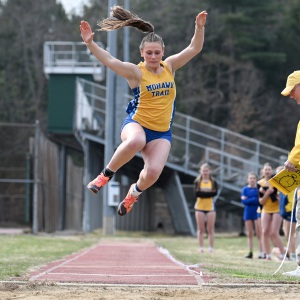 Track roundup: Mohawk Trail opens season with sweep over Franklin Tech/Turners Falls (PHOTOS)
Track roundup: Mohawk Trail opens season with sweep over Franklin Tech/Turners Falls (PHOTOS)
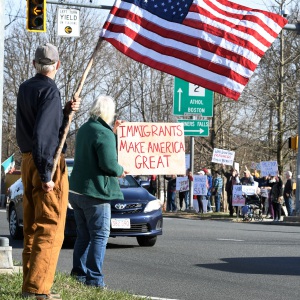 Attendance growing at weekly Gill standouts protesting Trump administration
Attendance growing at weekly Gill standouts protesting Trump administration
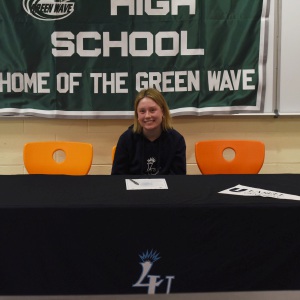 Pioneer's Riley Thayer commits to play field hockey at Lasell University
Pioneer's Riley Thayer commits to play field hockey at Lasell University
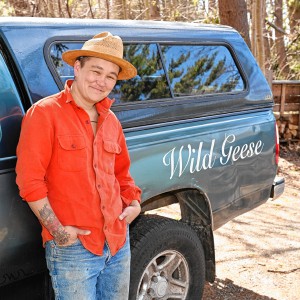 Northfield’s Wild Geese Decluttering helps clients achieve comfort through organization
Northfield’s Wild Geese Decluttering helps clients achieve comfort through organization
This is the way we might be together in this community, our Commonwealth, this country, our one common home, Earth. If only we might take the risk, commit to the steps, and allow ourselves to be the humans this world needs us to become.
The Rev. Alison Cornish is a Unitarian Universalist minister, living in Shelburne Falls. Her work currently focuses on the role of chaplaincy in a climate-changed world. Connect with Alison through the work of the BTS Center, www.thebtscenter.org. For more information about the Dare to Understand work in this essay, see interfaithphiladelphia.org/passport.






 The cost of addiction: New novel draws on Valley backdrop to explore how substance use upends people’s lives
The cost of addiction: New novel draws on Valley backdrop to explore how substance use upends people’s lives Young filmmaker makes his debut: 16-year-old director and writer to screen his film at Greenfield Garden Cinemas
Young filmmaker makes his debut: 16-year-old director and writer to screen his film at Greenfield Garden Cinemas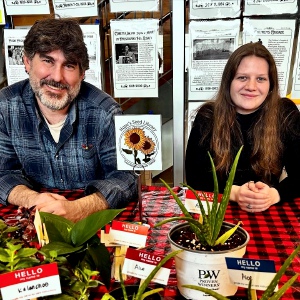 Sharing the beauty and practicality of seed saving: Hope’s Seed Library at GCC kicks off 10th year
Sharing the beauty and practicality of seed saving: Hope’s Seed Library at GCC kicks off 10th year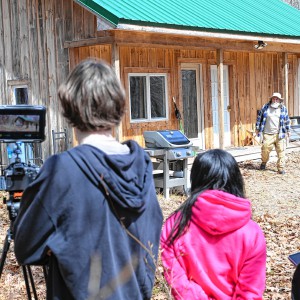 ‘Young creatives making magic in the forest’: Emerson students shoot Bigfoot film on alum’s Warwick campground
‘Young creatives making magic in the forest’: Emerson students shoot Bigfoot film on alum’s Warwick campground
